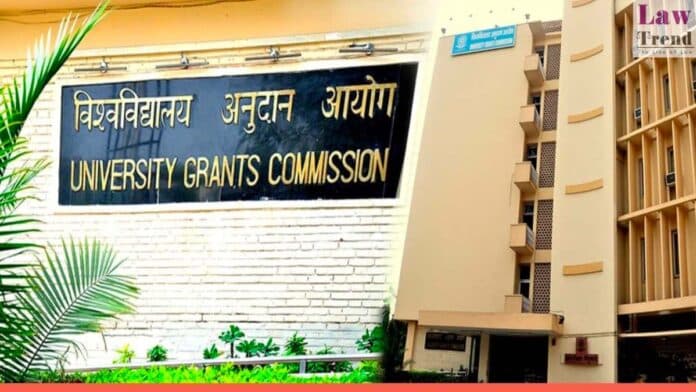The five-year law course is a professional degree programme which may require different yardsticks to select students for admission, the University Grants Commission told the Delhi High Court Tuesday in response to a petition against Delhi University’s decision to admit students to the course solely on the basis of CLAT-UG 2023 and not CUET.
UGC, in a counter affidavit filed in the matter, sought dismissal of the petition and said the DU, with the approval of its Academic Council and Executive Council, has resolved to admit students to its integrated law course through Common Law Admission Test (CLAT), a centralised national-level entrance test primarily adopted by the premier National Law Universities.
Similarly, the central government, which has earlier also stated that Common University Entrance Test (CUET) was not mandatory for central universities, said admission standards for professional courses like engineering, medicine, law etc are shaped by their specialised nature and specific skill and so are needed to be guided by the distinct prerequisites of each course.
“While there are overarching policy guidelines, universities retain the flexibility through their Competent Bodies i.e. Academic Councils and Executive Councils to tailor these guidelines to suit the unique demands of such professional courses,” the Centre said in its reply in the matter.
“The National Education Policy (2020) also envisions governance of Higher Education lnstitutions by highly qualified independent Boards having academic and administrative autonomy…the relief as sought by the petitioner to quash the admission notice of University of Delhi may not be granted,” it said.
Last month, a bench of Chief Justice Satish Chandra Sharma and Justice Sanjeev Narula had asked the Centre and the UGC to file their detailed replies on the petition by Prince Singh after the Centre’s counsel said CUET was not mandatory for central universities but the UGC’s lawyer took a contrary stand.
“It may be pertinent to mention here that Five-Year Integrated Law programme is a professional degree programme, and different yardsticks in terms of assessment/evaluation may be required to select students for admission in this professional degree programme. In view of the aforesaid facts and circumstances, it is most humbly prayed that this instant petition may be dismissed by this Hon’ble Court,” the affidavit filed by UGC said.
The Centre said in its response that DU was one of the premier central universities and has autonomous status in the management of its day-to-day affairs.
It stated that admission to its various professional courses and programmes are governed by DU’s own statutes, rules and ordinances etc.
Petitioner Prince Singh, a law student at Campus Law Centre in DU, has argued in his petition that the university, while issuing the impugned notification, has imposed a “wholly unreasonable and arbitrary condition” that the admission to five-year integrated law courses shall be solely based upon merit in the CLAT-UG 2023 result, which is violative of the right to equality under Article 14 and right to education under Article 21 of the Constitution.
Also Read
The plea has said the condition lacks any intelligible differentia and has no rational nexus with the object of admission to the five-year integrated law courses at the Faculty of Law.
The petition has sought that admissions to the five-year integrated law courses be done through the CUET- UG, 2023.
It has said CUET-UG 2023 was introduced by the Union Ministry of Education (MoE) for admission to all undergraduate programmes in central universities for academic session 2023-24.
Earlier this month, the high court had questioned DU’s decision to admit students to five-year integrated law courses solely on the basis of CLAT-UG, 2023.
The high court had said when other central universities were allowing admission for the course on the basis of CUET UG 2023 introduced by the Ministry of Education, Delhi University was “not special”.




